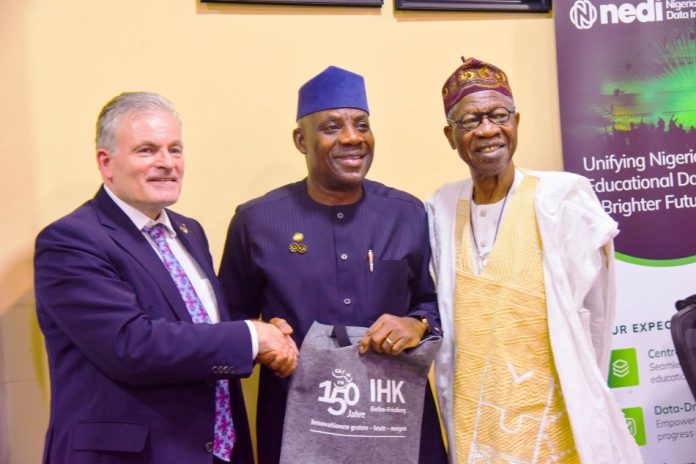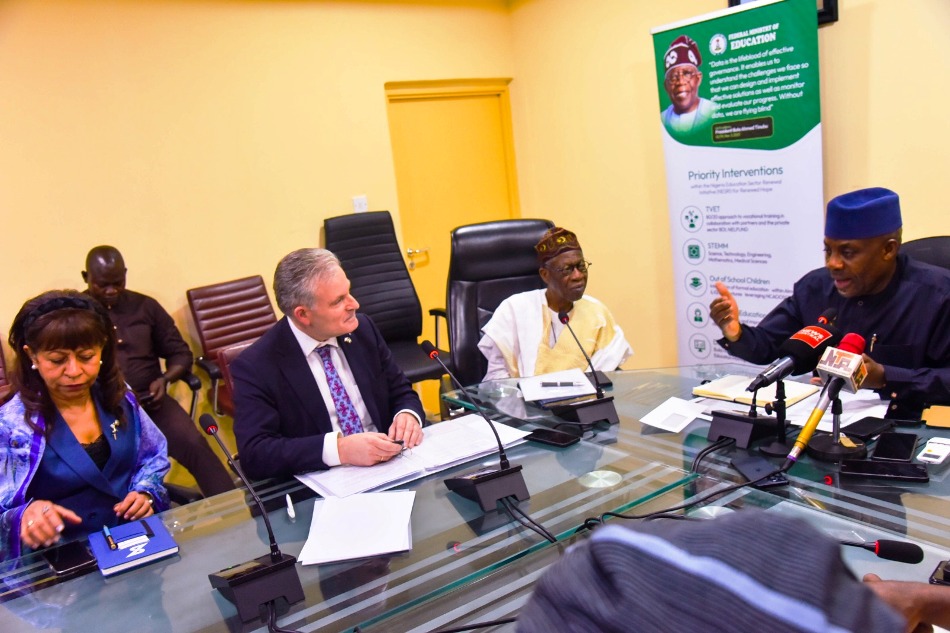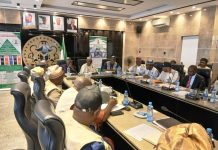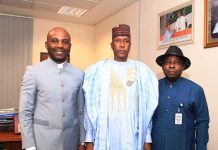In its continued efforts to empower young Nigerians with globally competitive skills and promote regulated labour mobility, the Federal Government of Nigeria has deepened collaboration with the Government and private sector of the Federal Republic of Germany to strengthen Technical and Vocational Education and Training (TVET) and advance structured labour migration initiatives.
This renewed partnership was reinforced during a strategic meeting between the Honourable Minister of Education, Chief (Dr.) Maruf Tunji Alausa, FAMedS, CON, and a delegation of the Delegation of German Industry and Commerce (AHK Nigeria) led by Dr. Matthias Leder, held on Tuesday, 4th November 2025, at the Ministry’s headquarters in Abuja.
Dr. Alausa explained that the collaboration aligns with President Bola Ahmed Tinubu’s Renewed Hope Agenda, which prioritizes youth empowerment, skills development, and job creation. He noted that the Ministry has rolled out a new TVET initiative that provides six to twelve months of intensive, practical training for graduates and school leavers without employable skills. The programme, already implemented across Federal Technical Colleges, has led to a 400% increase in enrollment, demonstrating rising public interest in technical and vocational education.
According to the Minister, “We can turn our youthful population into a demographic dividend. But if we fail to equip them with skills and opportunities, it could become a demographic catastrophe—which we must never allow.” He further disclosed that the Ministry has mobilized funding to establish well-equipped workshops across technical colleges nationwide, covering training areas such as garment production, solar installation, GSM and computer repairs, plumbing, electrical work, livestock farming, and agro-processing.
Dr. Alausa commended the German Government and its private sector partners for their longstanding support in promoting skills development in Nigeria, noting that the dual vocational training model—where learners spend two-thirds of their time in industry and one-third in the classroom remains one of the most effective global models for aligning education with market needs. “Our collaboration with Germany ensures that Nigerian youth acquire both knowledge and practical experience, making them employable anywhere in the world,” he said.
Speaking earlier, the leader of the German delegation, Dr. Matthias Leder, emphasized the importance of dual vocational training, stating that it ensures immediate market responsiveness by integrating classroom instruction with company-based practice. He highlighted that this approach not only improves productivity but also creates a direct link between education and employment outcomes.
Dr. Leder also reiterated Germany’s interest in supporting Nigeria’s efforts to develop structured and legal labour migration channels, stressing that such arrangements benefit both nations by addressing skill shortages and promoting fair employment practices. He assured the Honourable Minister that the German Chamber remains committed to expanding partnerships that bridge education and industry for mutual growth.
Also present at the meeting, Alhaji Lai Mohammed, former Minister of Information and National Orientation, commended the initiative as a timely intervention to strengthen technical and vocational education in Nigeria. He emphasized that the collaboration reflects the Minister’s vision that “it is not enough to have a degree; one must also have a skill.” He noted that the German model, being more practical than theoretical, aligns with Nigeria’s aspiration to make education a driver of economic growth and self-reliance.
Both sides agreed to establish a Joint Technical Working Group to oversee the implementation of the partnership, monitor pilot projects, and harmonize standards between Nigerian and German institutions.
The Honourable Minister reaffirmed the Ministry’s unwavering commitment to fostering global partnerships that strengthen education delivery, institutional capacity, and youth inclusion in the modern economy. “Education must be globally responsive and future-oriented, serving as a catalyst for productivity and national prosperity,” he concluded.
Signed
Boriowo Folasade
Director, Press and Public Relations







